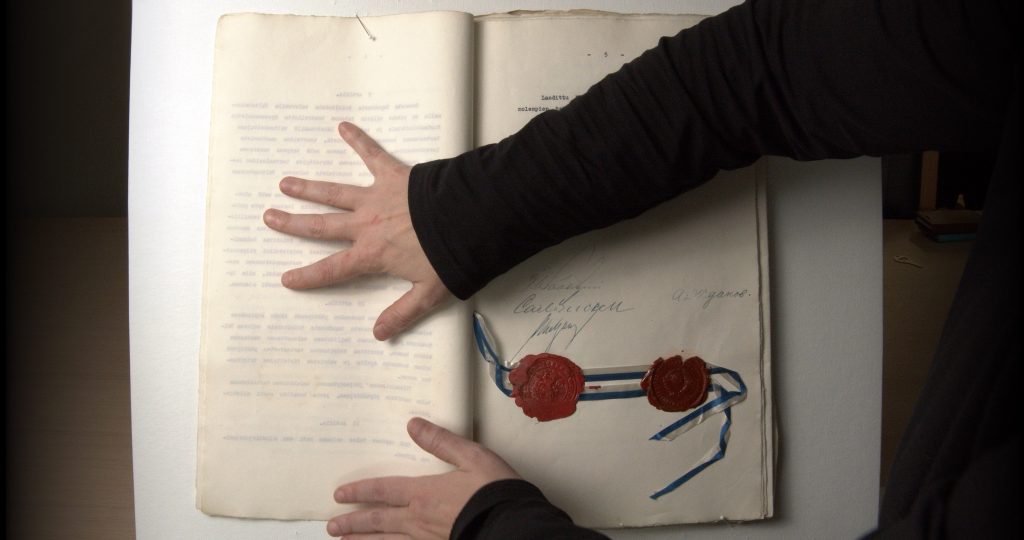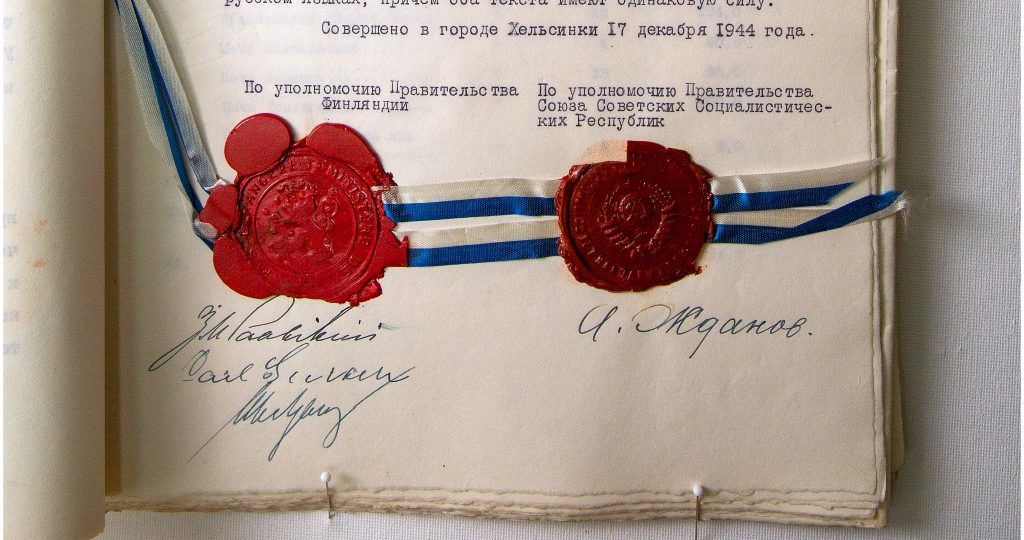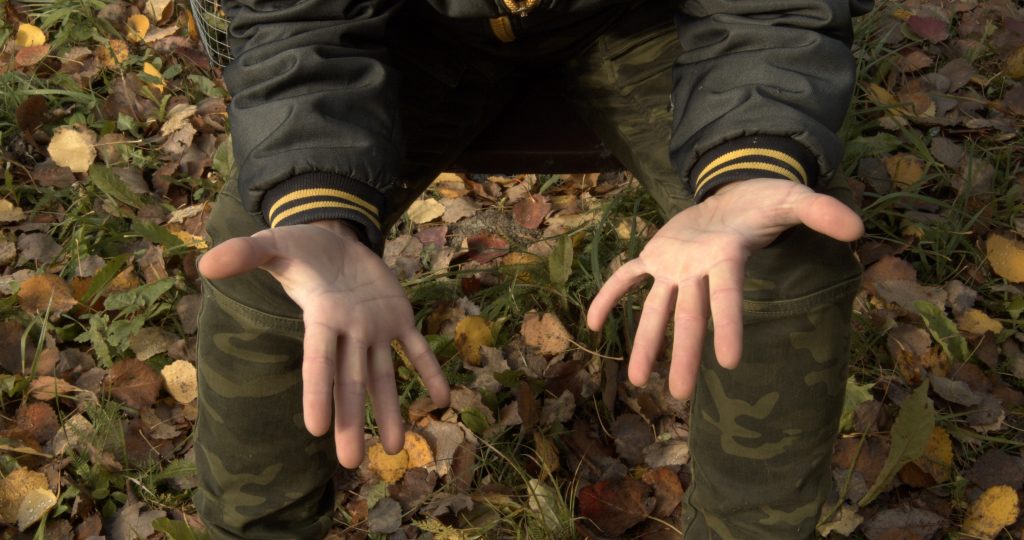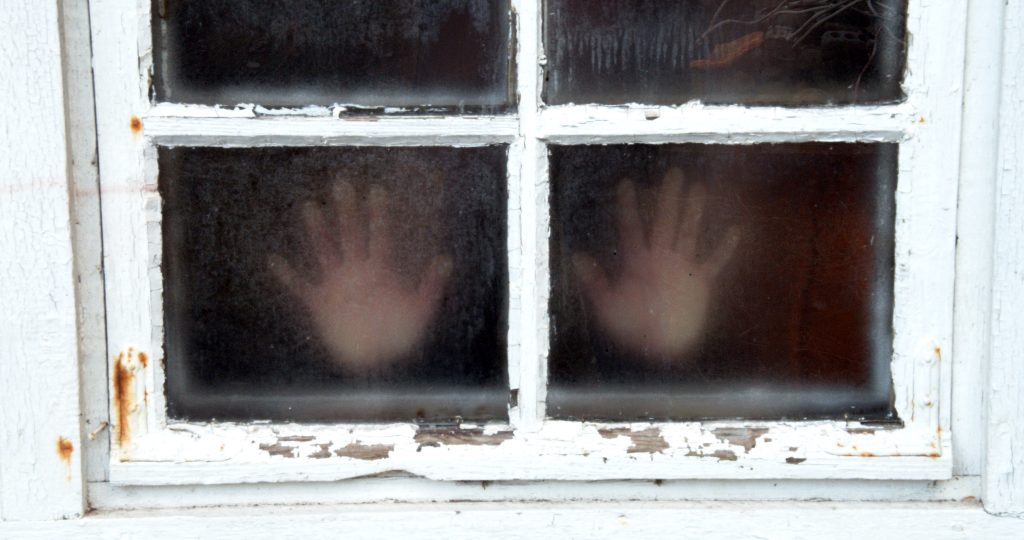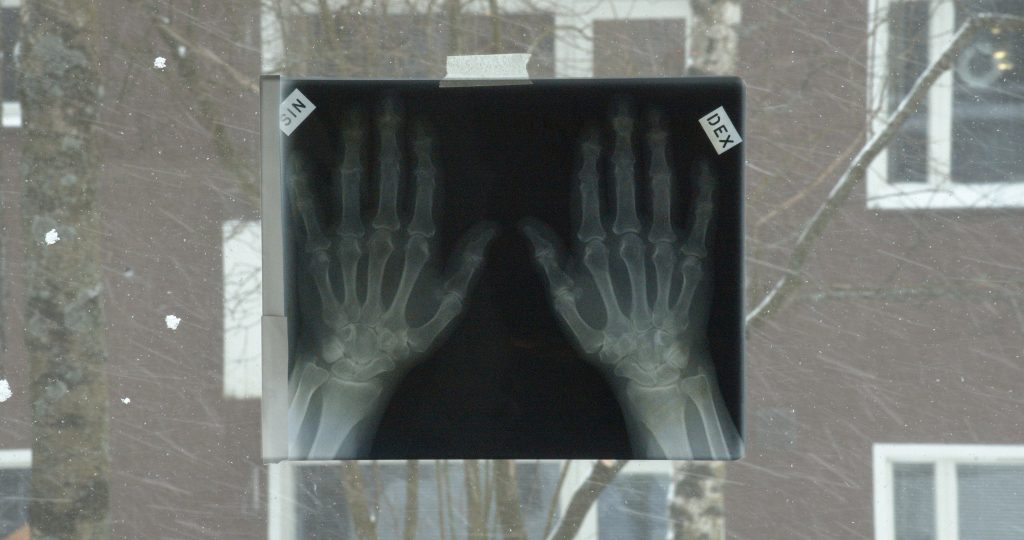Hanna Maria Anttila’s experimental film War Reparation (2021, 17:24) deals with the Finnish intergenerational transference of stress and trauma, related to work and one’s psyche, due to the effects of the Second World War.
Anttila interviewed Finns born in the 1960s and 1970s concerning their experiences of speechlessness, emotional expression and work during their childhood and youth. The soundtrack for the first part of the film is constructed from these interviews. Values that became idealised during wartime, such as the appreciation of hard work, efficiency, and avoidance of emotional display, continued as behavioural patterns in many Finnish homes in the 1980s. Upholding the ideal of hard work ensured better living conditions for future generations. Love was expressed by attempts at improving living standards, leaving words of caring and intimacy unspoken in many families.
The latter part of the film is Anttila’s audio letter to her grandfather, who was traumatised by the war. Anttila parallels her grandfather’s mental and physical injuries with her own sister’s body. Working as a glassblower for many years, her sister’s body was worn down from the severe factory conditions. Anttila analyses the burden of silence concerning past traumatic events and their transmission from her grandparents to her childhood home. The intergenerational nature of war-induced trauma is both a deeply personal and a widely shared experience. Fortunately, years later, as an adult, it is possible to increase your understanding, and take a gentler look at yourself and loved ones, and express words of love.
For the visual part of the work, Anttila photographed the original war reparation contract between Finland and the Soviet Union from the Ministry for Foreign Affairs’ archives. Anttila combines this document with close-ups filmed during the pandemic, shot on commuter routes and workplaces that remain anonymous. She also uses materials from family albums and the Finnish Wartime Photograph Archive (SA-kuva).
Taylorism, a scientific management system aimed at maximising efficiency and resources, became a guideline for development in Finland due to the pressures created by fulfilling the war reparations to the Soviet Union. Perspectives pivot between the private and the larger societal structures in Anttila’s work. The film identifies trajectories that largely define what the Finnish work-oriented society currently looks like, even today. At the same time, these developments explain sources of pain in many people’s personal and family life.
Kaino Wennerstrand has composed original music and is responsible for the sound design of the film.
First shown in Hippolyte Studio 7.5.–30.5.2021

